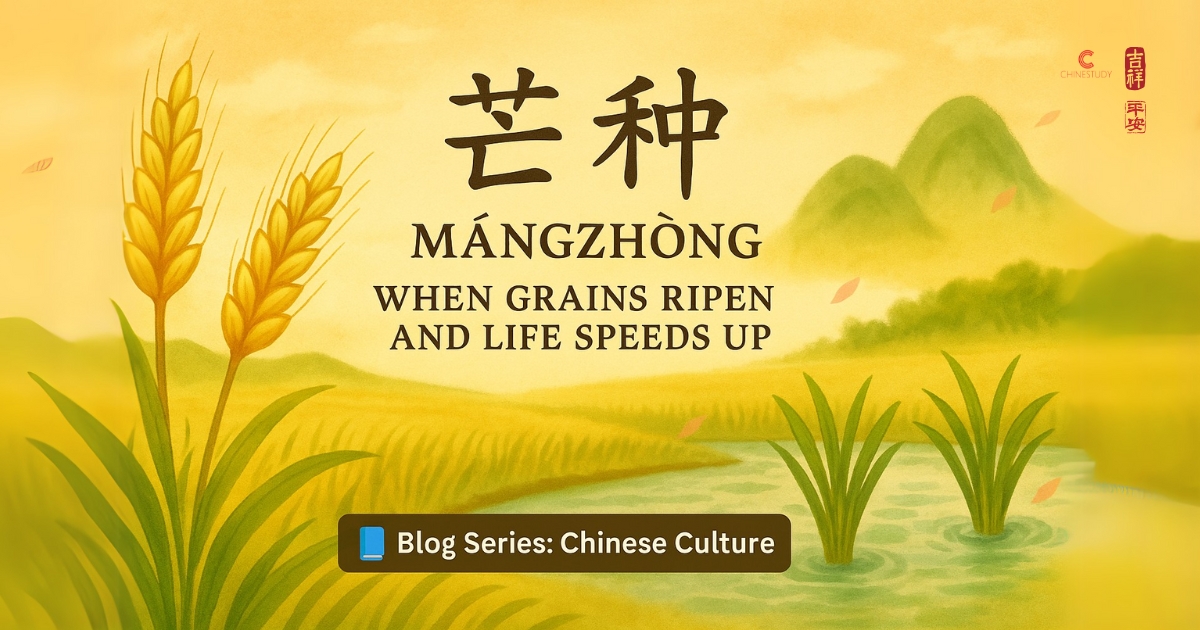🌾 芒种 Mángzhòng – When Grains Ripen and Life Speeds Up

芒种 (Mángzhòng) is the 9th of the 24 solar terms in China, and usually falls around June 5–7.
The name means “Grain in Ear” — a time when wheat and barley ripen, and rice planting begins.
It’s a signal for farmers to act fast before the short window of harvest passes.
🌱 What Does It Mean?
- 芒 (máng) = “awn,” the bristle on ripe grains
- 种 (zhòng) = “to plant”
So, 芒种 is a time to:
- Harvest crops with awns like wheat 🌾
- Start planting rice in southern China 🌱
It’s also known as a season of rush — both in agriculture and life.
🌤️ Seasonal Feel & Daily Life
- Rain increases and humidity rises
- People often feel tired or sluggish
- It’s important to eat light, stay cool, and rest well
In southern China, families may drink herbal teas or eat cooling foods like cucumbers or mung bean soup.
🗣 Key Vocabulary & Expressions
- 芒种 (Mángzhòng) – Grain in Ear
- 麦子熟了 (Màizi shú le) – The wheat is ripe
- 插秧 (chā yāng) – To plant rice seedlings
- 节气 (jiéqì) – Solar term
- 顺应节气 (shùnyìng jiéqì) – Follow the rhythm of the solar terms
💬 Try This!
Translate and read aloud:
农民在芒种的时候开始插秧。
(Nóngmín zài Mángzhòng de shíhou kāishǐ chāyāng.)
👉🏼 Farmers start planting rice during Mángzhòng.
Word-by-word:
- 农民 (nóngmín) – farmer
- 芒种的时候 (Mángzhòng de shíhou) – during Mángzhòng
- 开始 (kāishǐ) – start
- 插秧 (chāyāng) – to plant rice seedlings
🇨🇳 Cultural Insight
The solar terms are more than farming schedules.
They reflect a deep connection between time, nature, and human rhythm in Chinese culture.
芒种 (Mángzhòng) reminds us that timing matters — both in farming and in life.
🌟 Final Thoughts
This season teaches urgency, care, and balance. Even in modern life, 芒种 is a reminder:
🌾 Plant at the right time.
🌱 Act when things are ripe.
💡 Rest and recharge.
🇨🇳 Curious about more Chinese traditions?
📚 Step into the blog series: Chinese Culture!
Thank you for subscribing!
Have a great day!